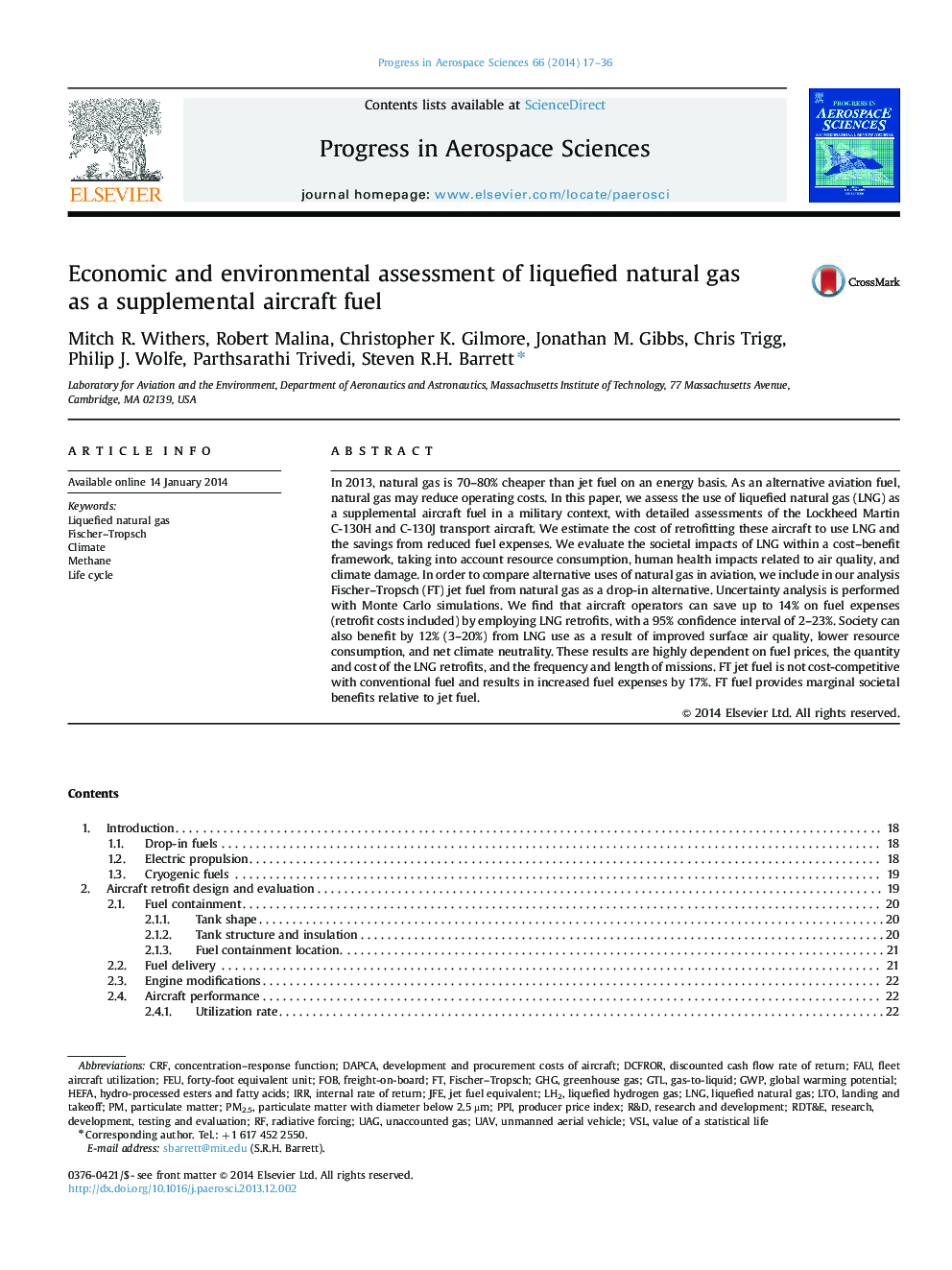| Article ID | Journal | Published Year | Pages | File Type |
|---|---|---|---|---|
| 1719252 | Progress in Aerospace Sciences | 2014 | 20 Pages |
Abstract
In 2013, natural gas is 70-80% cheaper than jet fuel on an energy basis. As an alternative aviation fuel, natural gas may reduce operating costs. In this paper, we assess the use of liquefied natural gas (LNG) as a supplemental aircraft fuel in a military context, with detailed assessments of the Lockheed Martin C-130H and C-130J transport aircraft. We estimate the cost of retrofitting these aircraft to use LNG and the savings from reduced fuel expenses. We evaluate the societal impacts of LNG within a cost-benefit framework, taking into account resource consumption, human health impacts related to air quality, and climate damage. In order to compare alternative uses of natural gas in aviation, we include in our analysis Fischer-Tropsch (FT) jet fuel from natural gas as a drop-in alternative. Uncertainty analysis is performed with Monte Carlo simulations. We find that aircraft operators can save up to 14% on fuel expenses (retrofit costs included) by employing LNG retrofits, with a 95% confidence interval of 2-23%. Society can also benefit by 12% (3-20%) from LNG use as a result of improved surface air quality, lower resource consumption, and net climate neutrality. These results are highly dependent on fuel prices, the quantity and cost of the LNG retrofits, and the frequency and length of missions. FT jet fuel is not cost-competitive with conventional fuel and results in increased fuel expenses by 17%. FT fuel provides marginal societal benefits relative to jet fuel.
Keywords
LH2IRRCRFFOBPPIGTLVSLUAGFAUGHGGWPHEFALNGPM2.5LTOProducer Price IndexDCFRORdiscounted cash flow rate of returnFEUvalue of a statistical lifeRadiative forcingClimateResearch and developmentR&Dparticulate matterFischer–TropschMethaneInternal rate of returnUnmanned Aerial Vehicleglobal warming potentialUAVLife cycleGas-to-liquidLiquefied natural gasGreenhouse gas
Related Topics
Physical Sciences and Engineering
Engineering
Aerospace Engineering
Authors
Mitch R. Withers, Robert Malina, Christopher K. Gilmore, Jonathan M. Gibbs, Chris Trigg, Philip J. Wolfe, Parthsarathi Trivedi, Steven R.H. Barrett,
